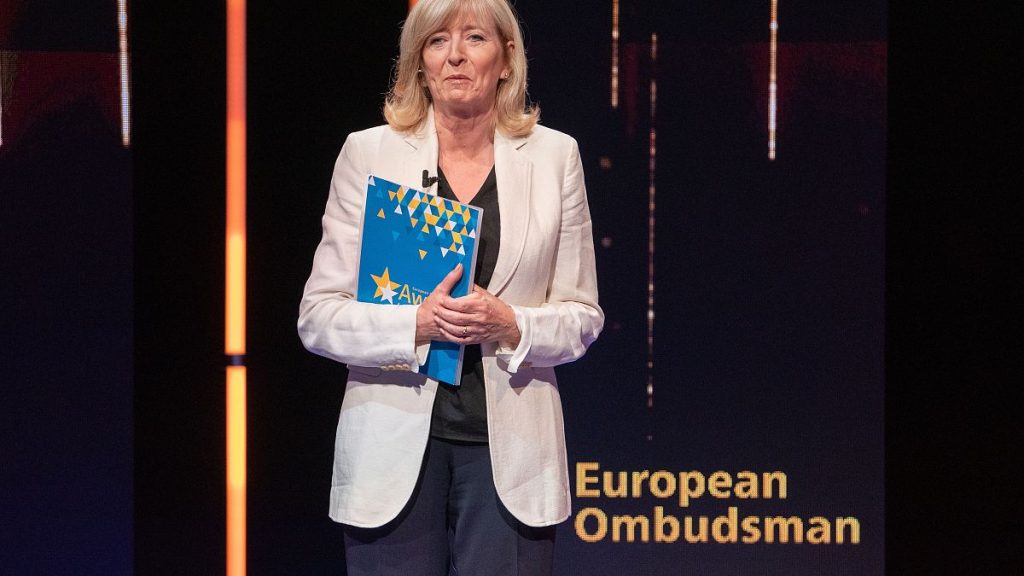The European Parliament recently held hearings to select the next EU Ombudsman, a position dedicated to scrutinizing potential malpractice within EU institutions. Six candidates from various countries, including Austria, Portugal, Estonia, the Netherlands, and Italy, presented their vision and qualifications to the Parliament’s Petitions Committee ahead of secret ballots scheduled for mid-December. This role, previously held by Ireland’s Emily O’Reilly for over a decade, has grown significantly in importance, emphasizing the ombudsman’s role as a critical component of EU checks and balances. While this position is theoretically neutral, political dynamics inevitably permeate the selection process, influencing candidates’ presentations and anticipated outcomes.
Despite spending over eight hours in hearings, the candidates provided few concrete policy proposals. The ombudsman’s duties mainly entail managing individual complaints from aggrieved citizens rather than setting legislation, which may explain the lack of bold commitments. Some candidates, like Reinier van Zutphen from the Netherlands, voiced the importance of the ombudsman in conveying citizen concerns under EU rules. Teresa Anijnho from Portugal advocated for reforms in the EU’s freedom of information law, while Italy’s Marino Fardelli proposed more innovative approaches like a smartphone application to enhance citizen engagement with case management. Overall, the lack of controversial individual case discussions and firm vows insinuated a desire for continuity in the role rather than a radical shift in its execution.
The six candidates presented a diverse array of qualifications and backgrounds. Three, including van Zutphen, Anijnho, and Fardelli, had direct experience as national ombudsmen, while the others showcased less traditional career paths. Emilio De Capitani from Italy brought over 25 years of EU institutional experience, advocating for enhanced transparency. Julia Laffranque, a supreme court justice from Estonia, underwent a noticeable transformation in perspective from her previous candidacy, expressing her appreciation for O’Reilly’s work. Meanwhile, Claudia Mahler from Austria capitalized on her outsider status, arguing that having not been entrenched in EU institutions would provide fresh insights. This eclectic mix of candidates emphasizes the broad spectrum of experience and approaches available for this crucial role.
Political considerations invariably influence the selection process, despite the role’s intended neutrality. Following the public hearings, private discussions will occur as candidates work to gain support from various political factions within the Parliament. Political allegiances have surfaced, with candidates like De Capitani openly sharing their ideals for a stronger EU, while others, such as Laffranque, sought to present themselves as aligners with diverse political viewpoints. Anijnho, however, faced scrutiny regarding her political past and how it might affect her impartiality. In addressing these concerns, she stressed her professional experiences outside party politics, attempting to prove her suitability for the role through her career trajectory.
The hearings also highlighted varying levels of language proficiency among the candidates. While most communicated fluently in English, Fardelli passionately opted to express himself in Italian, earning a mix of responses from the MEPs. The use of English, especially among the candidates, was often interwoven with typical bureaucratic jargon and phrases unique to EU discourse. Anijnho pledged to promote “meaningful constructive dialogue” and “active citizenship,” while De Capitani adeptly referenced EU treaties and regulations, illustrating an inherent familiarity with EU language. Laffranque’s responses demonstrated the complexities of interpreting EU law, further revealing how candidates navigated the balance of communicating effectively both within political structures and to European citizens.
Overall, the selection process for the new EU Ombudsman illustrates the intersection of governance, institutional experience, and the political landscape within Europe. While the candidates offered varied insights into their qualifications and approaches, the hearings largely underscored a significant aspect of the role: mediation between EU institutions and ordinary citizens. The discussion of potential reforms and transparency reflected a broader need for accountability within EU mechanisms. As the secret ballots approach, these candidates’ fates will ultimately depend on their ability to connect with MEPs and address the dynamic challenges facing EU governance in real terms. The ability of the new ombudsman to navigate these complexities will be crucial in shaping the future of the position, reinforcing its established functions while potentially expanding its reach into new realms of citizen engagement and transparency.










